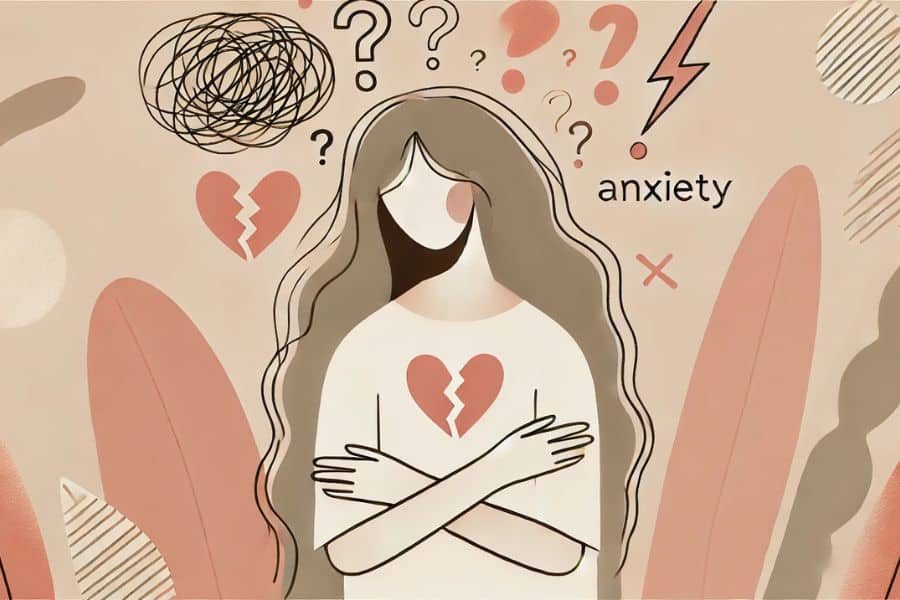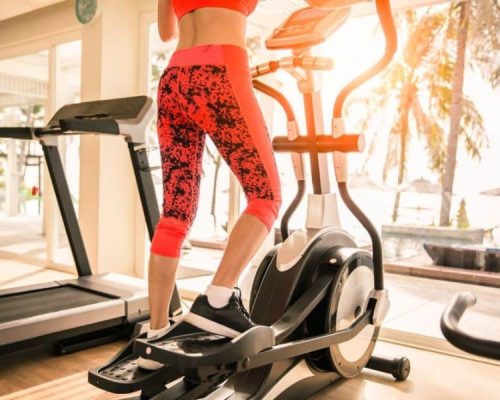Understanding Anxiety Treatment
Traditional vs. Alternative Approaches
When you’re dealing with anxiety, knowing the difference between traditional and alternative approaches can help you choose the best treatment for you.
Traditional treatments usually come first when tackling anxiety. They often involve meds and therapy. Medications like SSRIs, benzodiazepines, and beta-blockers are pretty common and usually prescribed by doctors. Cognitive Behavioral Therapy (CBT) is a go-to type of therapy that’s often used to help manage anxiety disorders (cognitive behavioral therapy for anxiety). But sometimes, these traditional options can bring along nasty side effects (anxiety medication side effects), which sends folks in search of something different.
Alternative treatments ditch the usual medical route for methods that are considered “off the beaten path.” These complementary and alternative medicine (CAM) therapies are getting attention for treating Generalized Anxiety Disorder (GAD) because they tend to be more natural and generally safer than their traditional counterparts (NCBI).
| Treatment Method | Example Therapies | Perks | Drawbacks |
|---|---|---|---|
| Traditional | Meds (SSRIs, benzodiazepines), CBT | Proven track record, widely accepted | Possible side effects, not a one-size-fits-all |
| Alternative | Yoga, Meditation, Acupuncture, Herbal Supplements | Natural vibe, fewer side effects, big-picture view | Sometimes lacks solid scientific backing, hit-or-miss results |
Acceptance and Effectiveness of CAM
CAM tactics like yoga, meditation, acupuncture, and good old herbal medicine are becoming more popular. Studies show that some of these methods can actually be pretty good at handling GAD. Take yoga therapy, for example, which mixes body poses, breathing techniques, relaxation, and mindfulness exercises. It’s been shown to help ease anxiety (NCBI). Same goes for herbal remedies, which are showing promise without as many of the harsh reactions compared to traditional meds (herbal supplements for anxiety).
Mindfulness and Meditation
Mindfulness-Based Interventions (MBIs) like meditation and mindfulness therapy have shown impressive results for reducing anxiety symptoms. These practices center on keeping your mind in the now and being aware of your thoughts and feelings, which can be a big help in managing anxiety.
Acupuncture and Other Techniques
Acupuncture also gets a nod for its positive effects in calming anxiety in folks with GAD. And let’s not forget things like Tai Chi and massage therapy, which can knock stress down a peg and boost overall well-being (relaxation techniques for anxiety). To dig deeper, check out complementary therapies for anxiety.
In your search for the best alternative treatments for anxiety, consider blending traditional and alternative options to see what works for you.
Herbal Remedies for Anxiety
Benefits and Risks of Herbal Supplements
So, you’ve got the jitters, and you’re thinking, “Hey, maybe those herbal thingamajigs could be the way to go!” Herbal supplements have long been the go-to for folks looking to chill out naturally. But, like a well-crafted smoothie, you gotta know what you’re blending.
Benefits of Herbal Supplements
Herbal fixes ain’t new—folks have leaned on them practically since the wheel was invented. And some of these green goodies are all about easing those racing thoughts.
| Herbal Supplement | What It Might Do for You |
|---|---|
| Valerian Root | This root’s working overtime to keep you calm and might help you catch some Zs. It supposedly bumps up that chill chemical, GABA, in your noggin. |
| Passionflower | Shoutout to Passionflower! Rumor has it, it not only keeps anxiety at bay but also ups your sleep game. It handles GABA like a champ. |
| Lavender | You know how that lavender stuff is always lurking in bath bombs? That’s because it’s got a rep for making you less twitchy and more zen. |
| Chamomile | If you’ve sipped chamomile tea, you know it’s like a warm hug for your insides. It’s got those “calm down” vibes locked down. |
For more deets on these leafy legends, swing by our herbal supplements for anxiety guide.
Risks of Herbal Supplements
Not everything’s rainbows and butterflies, though. Herbs, while sounding all safe and mystical, aren’t foolproof. The FDA’s a bit hands-off when it comes to these, meaning they can’t always vouch for what’s inside.
| Bumpy Road Ahead | What to Expect |
|---|---|
| Feeling Drowsy | Time for a nap? Some of these might knock you out a little too much. Those sleepy vibes are excellent for bedtime, less so for driving. |
| Clash With Meds | Mixing herbs with meds might bring fireworks—and not the good kind. Watch out for potential cocktail hazards. |
| Quality is Questionable | “Natural” doesn’t always equal “good.” Some supplements might have more twigs than magic. |
| No Crystal Ball for Long-Term Use | We’ve been using modern medicine for ages, but these herbals? Their long-term side effects are still a bit shrouded in mystery. Best to chat with your doc. |
If you’re already downing meds, make it a point to yak with your healthcare guru before chucking herbal magic into the mix. Especially if you’re mulling over partnering these potions with traditional anxiety meds.
Knowing what your mixing bowl holds can help you figure out if herbs are your jam. If Mother Nature’s your kind of healer, try these supplements, but do it like a boss—with a doctor in the loop. Got a taste for more nature-based fixes? Roll over to our natural remedies for anxiety hub.
Lifestyle Factors and Anxiety
Tweaking your daily habits can be a game-changer for keeping anxiety in check. Let’s chat about caffeine, booze, nicotine, what’s on your plate, and the magic of getting moving.
Impact of Caffeine, Alcohol, and Nicotine
These everyday culprits can mess with your anxiety dial. Here’s the lowdown:
- Caffeine: If your nerves go haywire after that cuppa joe, you might be sensitive to caffeine. For some folks, just about 200 milligrams a day (think two cups of coffee) can crank up the jitters. Got you curious? Peek at our natural remedies for anxiety for more tips.
| Substance | Anxiety Impact |
|---|---|
| Caffeine (200 mg/day) | Might stir up anxiety |
-
Alcohol: Grabbing a drink might seem like a chill pill, but it often sneaks anxiety back into your life when you’re not looking (Healthline).
-
Nicotine: It gives you short-lived relief, but in the long run, it tends to invite anxiety to the party more often and with extra gusto.
If you’re wondering how to ditch these habits, swing by our medication for anxiety section for a little help.
Diet and Nutritional Recommendations
What you eat can really influence how you feel upstairs. A solid, nutrient-packed diet might just keep anxiety at bay. Chew on these tips:
- Boost Omega-3 Fatty Acids: Found in goodies like fish, flaxseeds, and walnuts. They’re your brain’s best friend for fighting anxiety.
- Munch on Antioxidant-Rich Foods: Load up on berries, nuts, and leafy greens. Curious? Our vitamins for anxiety piece has more nibble-worthy info.
- Limit Sugary and Processed Foods: They can make your mood seesaw and mess with anxiety levels.
Exercise and Stress Reduction
Moving your body isn’t just about wearing out your running shoes. It’s pure magic for your mental health, too. From lowering stress to enhancing your mood, here’s how to get started (Healthline):
- Aerobic Exercise: Whether you’re into running, swimming, or biking, get that heart pumping.
- Strength Training: Pick up some weights and pump up those endorphins.
- Yoga and Tai Chi: Focusing on breath and flow, these gentle activities are gold for calming anxiety.
For some more wellness gems, explore our relaxation techniques for anxiety.
By cutting back on the caffeine, alcohol, and nicotine, nourishing your body wisely, and sweating it out regularly, you’ll be well on your way to taming your anxiety and feeling all-around better.
Psychological Therapies
Folks often reach for herbal teas or nature-based fixes when dealing with the jitters, but good ol’ therapy is still a top-notch option. We’re gonna have a chinwag about two popular methods: Cognitive Behavioral Therapy (CBT) and talk therapy.
Cognitive Behavioral Therapy (CBT)
CBT ain’t just some fancy term. It’s a popular way to tackle anxiety head-on. The point? To spot those pesky negative thoughts and behaviors that put you in a tizzy and flip ’em on their heads. You learn to think a bit more clearly and deal with life’s curveballs a tad better.
This therapy is pretty hands-on, spanning around 6-20 sessions. It’s all about reducing jitteriness and tweaking behavior to keep anxiety in check (Mayo Clinic). Here’s a quick peek at what’s involved:
- How Long: 6-20 Sessions
- What You’ll Tackle:
- Digging out those worrisome thoughts
- Giving ’em a run for their money and reshaping them
- Carving out coping tactics
Want more deets on how CBT might be your new BFF? Swing by our section on cognitive behavioral therapy for anxiety.
Benefits of Talk Therapy
Talk therapy, AKA just having a good ol’ chat, is another great way to handle anxiety. It’s less rigid than CBT but can be just as helpful. Imagine it as your safety net—a place to talk about what’s swirling in your mind with someone who’s got your back. Your therapist can help you see why you feel what you feel.
What’s in it for You:
- Emotional Backbone
- Illuminating those Nerve-Wracking Triggers
- Crafting Personal Coping Moves
Feel free to mix talk therapy with stuff like meditation for anxiety or even meds if needed. For a well-rounded approach, take a gander at how mindfulness ties into therapy.
| Therapy Type | Duration | Focus |
|---|---|---|
| CBT | 6-20 sessions | Identifying and changing negative thoughts |
| Talk Therapy | Flexible | Emotional support and understanding |
Both CBT and talk therapy pack a punch in tackling anxiety, especially when paired with other chill-out methods. Whether you fancy a planned-out strategy like CBT or prefer the in-depth convo route of talk therapy, looking after your noggin’ is the first stride toward more peace and balance. For extra reads on anxiety fighter tactics, check out our takes on calming techniques and natural goodies for anxiety.
Mindfulness and Meditation
Overview of Meditation Practices
Meditation’s got your back when it comes to tackling anxiety the natural way. Passed down through the ages, it’s like that wise elder in your life, helping calm your mind, melt away stress, and spread good vibes (Mayo Clinic).
Check out some popular meditation styles you might want to try out:
- Deep Breathing Exercises: Simple—just focus on long, slow breaths to chill out.
- Body Scanning: Tune into your body’s different parts to let go of tension.
- Walking Meditation: Keep your steps and mindfulness in sync.
- Prayer: Spiritual or religious prayer as a meditative method.
- Reflective Reading: Dive into poems or sacred texts for some deep thought.
| Meditation Practice | What’s It About |
|---|---|
| Deep Breathing Exercises | Breathe in peace, breathe out stress |
| Body Scanning | Scan and release tension |
| Walking Meditation | Mindful walking |
| Prayer | Spiritual or religious moments of peace |
| Reflective Reading | Reflect deeply on written wisdom |
No pressure, no stress—meditation’s flexible and can meet you where you are in beating stress (Mayo Clinic). Curious for more? Swing by and read our guide on meditation for anxiety.
Mindfulness-Based Interventions (MBIs)
Mindfulness-Based Interventions, or MBIs for short, are programs that mix mindfulness exercises to help you keep stress and anxiety in check. Here are a couple of the big players:
MBSR—a.k.a. Mindfulness-Based Stress Reduction is an eight-week ride teaching mindfulness meditation to handle life’s tough spots—stress, pain, illness, you name it. You’ll be part of weekly group meet-ups and daily mindfulness practices.
MBCT—or Mindfulness-Based Cognitive Therapy blends together brain strategies with mindfulness chops to help keep depression and anxiety from coming back. It’s a similar gig with group sessions and home practices.
Loads of research backs up how MBIs can really ease up anxiety symptoms. They don’t replace traditional therapy but play nicely together for more holistic anxiety management.
| MBI Program | What’s It For | How Long |
|---|---|---|
| MBSR | Stress, pain, illness go-to | 8 weeks |
| MBCT | Stops depression and anxiety from creeping back | 8 weeks |
Before diving in, chat with a healthcare pro about if MBIs are your jam. They work best when you buddy them up with other therapies like cognitive behavioral therapy for anxiety or medications.
Bringing some mindfulness and meditation into your routine can light up those relaxation techniques, helping you chill out and find that sweet spot of inner peace and balance.
Complementary Therapies for Anxiety
Dealing with anxiety? You’re not alone. There’s a whole bunch of complementary therapies waiting to make your life a bit easier. Things like acupuncture, yoga, and Tai Chi are all the rage for chilling out and improving your mental health game.
Acupuncture for Anxiety Relief
Let’s talk needles—not the scary kind, but the kind that can lessen your worry. Acupuncture, an old-school Chinese practice, involves poking the skin with tiny needles in certain spots. Weird? Maybe. Effective? Definitely. It’s like having a secret weapon against anxiety. It’s gained some love for having fewer side effects than popping pills or hitting up a therapist session, especially when living through something like the COVID-19 mess.
People with Generalized Anxiety Disorder (GAD) have reported feeling less stressed thanks to acupuncture. Studies back this up (NCBI).
| Treatment | Does It Work? | Why You’ll Like It |
|---|---|---|
| Acupuncture | Totally | Fewer side effects, super during COVID-19 |
Curious about other natural ways to chill out? Check out our natural remedies for anxiety.
Yoga and Tai Chi as Relaxation Methods
Yoga isn’t just about stretching like a pretzel; it’s a full-on anxiety buster. With moves, breathing tricks, relaxation hacks, and some mindfulness magic thrown in, it’s a winner against Generalized Anxiety Disorder (GAD) (NCBI). Yoga can quiet your overactive brain, level up your focus, and give you a taste of tranquility.
Now, Tai Chi sounds like something you’d see in a kung fu flick, but it’s really a gentle form of martial arts. With slow moves and breathing, it’s a go-to for wiping out anxiety and stress in all sorts of folks.
| Therapy | Anxiety Helper? | What’s It All About? |
|---|---|---|
| Yoga | Absolutely | Movements, breathing magic, chill vibes |
| Tai Chi | Yep | Gentle actions, inhale-exhale, mind work |
Thinking of giving meditation a go? Dive into our meditation for anxiety.
These complementary therapies can be your new secret sidekicks in keeping anxiety in check, especially if you’re already doing the usual stuff. Curious about more treatments like Cognitive Behavioral Therapy? Swing by our cognitive behavioral therapy for anxiety page.










